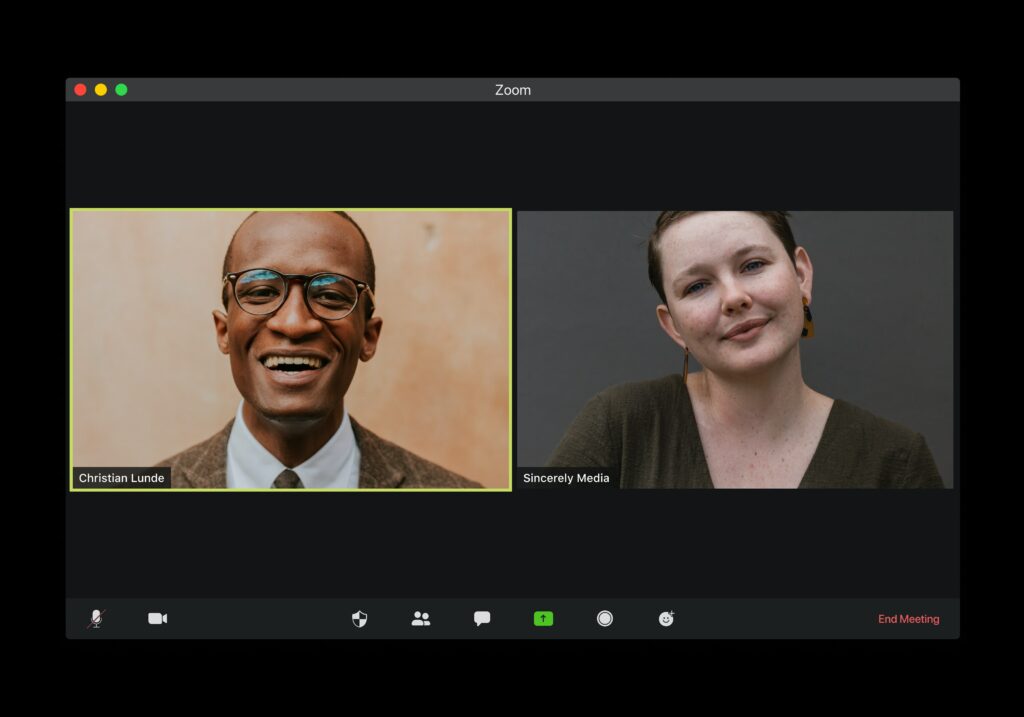
I spoke with a gentleman at a conference who was in sales, and he mentioned how hard it is to recognize the unsaid in the virtual world when you cannot see ALL the body language of those you interact with. Being on the other side of a computer screen makes it a lot easier for people to hide. I told him there is much more that we can learn about a person using virtual platforms because we see more of their personal life. Which we can leverage as a launchpad to create more trust, safety, and allow deeper questions and interactions.
The key to recognizing the unsaid is picking up on those signals and noticing where words and actions don’t match up. Maybe they seem more distant and less focused, or just don’t seem as happy as they once were. Feeling isolated can do that to people. No matter the case, these signals can be more difficult to detect when your operations are run virtually.
A Shift in Virtual Culture
The pandemic has forced much of the workforce into remote work. For many employees, this is the first time they have tried working from home.
Here are a few statistics:
- 4.7 million people were already working remotely from home before the COVID-19 pandemic. (Flexjobs)
- 74% of companies plan to shift some of their employees to remote working permanently after COVID-19 (Gartner)
- Before the pandemic, 52% of global employees work remotely once a week, and 68% do so at least once per month (Owl Labs)
- 77% of remote employees say they’re more productive when working from home. (CoSo Cloud)
As shown, companies were already starting to embrace remote working before the pandemic. This new type of leader needs to focus more on setting clear expectations and goals. This will create a culture of accountability.
Working remotely means leaders can no longer have casual conversations in the break room or in the hallways. Yet, it’s still possible to translate in-person leadership skills into virtual skills, so that you can continue that human connection with your team. Strong leadership is essential for creating a business culture that’s productive, innovative, and able to adapt to an ever-changing professional landscape.
But what happens when things don’t feel right?
Clear Distractions
A great place to start if you feel like your organization’s virtual atmosphere feels off is to clear away distractions and carve out more quiet time. This will allow you to really lean in and be present with your employees. Having consistent one-on-one meetings with each team member will eliminate anyone feeling like they’re being singled out and will create clear and concise communication. Check in on projects and progression without micromanaging, and let your people know you’re there if they need you. This will also help you observe more deeply and ask the right questions to make the unsaid, said.
Most Importantly, Be Empathetic
To be an excellent virtual leader, you need to get in touch with your employees at an emotional level. This requires you to be completely honest and transparent in order to maintain credibility and preserve integrity. This is what makes the difference in making an otherwise isolated work environment, feel like you’re still a part of a close-knit team.
If you notice one or more of your employees has seemed out of it lately or their productivity seems below average, reach out and ask if they’re needing any support. Most of the time, people are just looking for an out, especially those who have a lot on their plate. “If I just keep my head down, hopefully, no one will notice.” Help them eliminate that thought process. Maybe they’re overwhelmed with work. Or nervous to admit it and feel like they’re letting you down if they require assistance. Perhaps things aren’t going well at home, and they’re doing their best to “Leave it at the door” day in and day out. A variety of factors can come into play with personal emotions affecting work ethic. It’s a lot easier to wear a happy face when you only have a few Zoom meetings every day.
Virtual Reality
When you lead with empathy in a virtual environment, you create an element of humanity in an otherwise detached virtual environment. This helps eliminate that sense of isolation that virtual workers can experience. It allows them to feel like they’re part of a live community. If your employees feel safe enough to be upfront and honest with you, you continue building a foundation of trust, safety, transparency, and ultimately, loyalty.
The same holds true for those in sales or customer service. Lean in more, not less. Try to get to the bottom of what your customer needs by being less distracted and focusing on serving them. Sure. There are complications with Recognizing the unsaid from a screen, and we can all overcome this by paying greater attention to the signs unspoken.
